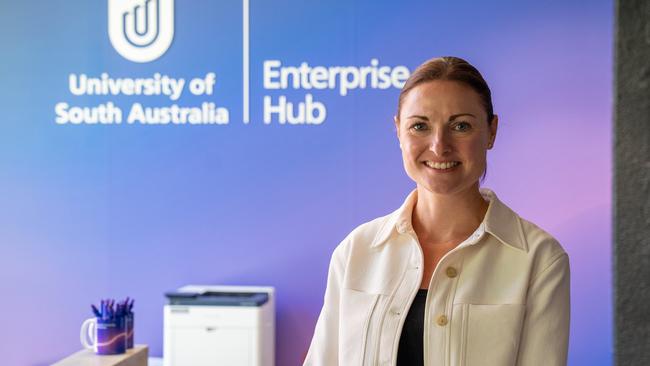Tech founder Dr Michelle Perugini to lead commercialisation at UniSA
Health and technology entrepreneur Dr Michelle Perugini has joined the University of South Australia as its new Head of Commercialisation.

Business
Don't miss out on the headlines from Business. Followed categories will be added to My News.
Health and technology entrepreneur Dr Michelle Perugini has joined the University of South Australia as its new Head of Commercialisation, and will also lead the university’s commercialisation arm UniSA Ventures as chief executive.
Dr Perugini founded two artificial intelligence-driven companies: a predictive analytics solution which was acquired by global consultancy EY, and an AI healthcare company (Presagen) which developed an AI IVF tool, Life Whisperer.
The latter was recently acquired by global medical equipment manufacturer, Astec.
Dr Perugini said she was keen to identify and promote the areas where the university’s academic research lined up with market needs.
“In entrepreneurship, identifying and deeply understanding your customers’ pain points is fundamental,’’ she said.
“A key part of this role is aligning academic work with real-world applications to evaluate the commercial potential of University projects and maximise the impact of research to drive successful commercial outcomes.’’
Dr Perugini said bolstering the connections between business and the university would also be a focus.
“Connecting universities with business is absolutely crucial to translating good research into real-world impact,’’ she said.
“Universities are often at the forefront of groundbreaking research, but without the proper business connections, many innovations can remain underutilised or stuck in the lab.
“By fostering strong collaborations with industry, universities can access the resources, expertise, and market insights needed to commercialise their research effectively.’’
Improving access to capital for early stage companies in South Australia is also something Dr Perugini is passionate about.
“South Australia faces a key challenge in improving access to capital for the commercialisation of university-driven research, particularly in deep technology which relates to research-intensive, high-impact innovations,’’ she said.
“While there is some support available, more funding options are needed to bridge the gap between early-stage research and market-ready innovations.
“Additionally, there is a need for more tailored education, mentorship, and business support to help researchers navigate the complexities of commercialisation.’’



